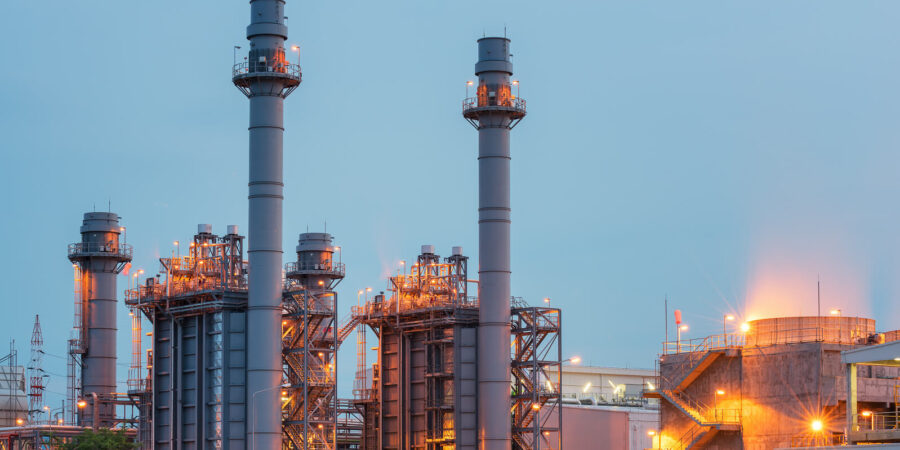On the 29th of May, 2023, Nigeria was thrown into a frenzy. The newly elected president, Bola Ahmed Tinubu had just announced the abolishment of the age-long fuel subsidy which has kept fuel prices at reasonably low prices for Nigerians. Fuel subsidy has become unsustainable and has thrown Nigeria into a debt burden. Post announcement, the market ignited as fuel prices skyrocketed, fueled by a wave of panic buying and hoarding. At the peak of the market disruption, Nigerians bought fuel for as high as N600. Presently they pay nearly three times the previous price for a litre of fuel, which currently stands between N488 to N577 per litre.
Curious about the public’s response to the subsidy’s suspension, I turned to Twitter. And the first thing that caught my attention on the timeline was a video showcasing the use of a gas cylinder to power a generator. Although not new, the use of autogas for domestic energy generation is surprising as it has experienced a snail-paced uptake over the years.
The slow adoption, Busayo Fabunmi, GM of operations for Asiko Energy Holdings Limited, told Ventures Africa, can be ascribed to Nigeria’s fuel subsidy regime that was in existence before now, making it difficult for gas-powered innovations to thrive. But there seems to be a change in fortune now.
Electricity access in Nigeria is still some sort of luxury to some of its citizens. The World Bank says about 85 million Nigerians (43% of the population) do not have access to grid electricity, making it the country with the largest energy access deficit globally. With such a poor power supply and a wide energy gap, generators have become a saving grace for Nigerians to run many of their daily activities, from things as basic as charging to running their businesses.
According to the International Renewable Energy Agency’s (IRENA) recent report, 84% of urban households use backup power supply systems such as fossil diesel gasoline generators, while 86% of the companies in Nigeria own or share a generator. This intensive and widespread use culminated in making Nigeria the highest importer of Premium Motor Spirit (PMS) and diesel generators in Africa as of 2022. This of course comes at a cost for not just individuals but businesses as well.
In the first half of 2022, top listed firms by market capitalisation, including Dangote Cement, BUA Foods, Guaranty Trust Holding Company (GTCO), and Zenith Bank, expended N207.54 billion on energy. Dangote Cement, which accrued the most energy cost, reported a 31.32 per cent increase to N129.97 billion from N98.97 billion in H1 2021, a price making up 40.31 per cent of its total production cost of sales in the first half of 2022. These figures are unsustainably high and serve as a hindrance to business or investment growth.
But now, the use of LPG for generators has become one of the alternatives Nigerians have embraced to stay afloat in this period of high fuel prices and a proposed increase in electricity tariff. Remarkably the use is becoming widespread.
The conversion: Petrol to propane.
Although generators designed specifically for natural gas are not common in Nigeria, the conversion of existing generators provides a practical solution to address the energy reality and meet the country’s power needs. The conversion involves replacing the fuel carburettor with a hybrid carburettor that allows the generator to function on both petrol and gas.
Fabunmi explained that the conversion kit presently used in Nigeria is predominantly designed for four-stroke engines. Four-stroke engines have separate compartments and tanks for fuel and oil, making them compatible with the available conversion kits. But a two-stroke engine for instance requires mixing oil with petrol in the same tank and cannot be converted using the existing conversion kits. A perfect example of this is the small popular domestic generator which has been dubbed I better pass my neighbour.
The conversion of a 5-6 kVA fuel-powered generator with a complete setup, including a cylinder and other necessary accessories, typically costs around N90,000- N95,000. However, conversion without buying a new cylinder would cost about N50,000- N55,000. Generators with a higher generating capacity of more than 10kVA cost between N55,000 and N100,000.
One of the contributing factors to the expensive kits is the reliance on imported components, which often results in increased prices. This price disparity arises due to factors such as import duties, transportation costs, and currency exchange rates. And with the current economic reality of the country, this may be on the high side for the citizens posing a significant hurdle in adopting gas-powered generators.
From fumes to fortune.
A recent analysis by Asiko Energy Holdings Limited a few months ago revealed that despite the initially high cost of conversion, the process offers significant long-term cost savings for average Nigerians. The study demonstrated that converting to gas power can result in approximately 40% reduction in expenses over time
This video from Asiko Energy Holdings Limited reveals that when considering cost and consumption rate, using a 12.5 kg gas cylinder provides approximately 15 hours of electricity at a cost of around N500/hr on a 7.5 kVA generator. In contrast, obtaining 14 hours of electricity with petrol requires 30 litres, costing N1050/hr—twice the cost of using gas. At this time the country’s gas prices are beginning to experience a decline. Hence, utilizing gas as fuel proves to be cost-effective, and it takes approximately 150-200 hours of running the generator to recover the expenses incurred during the conversion process. These cost savings can significantly benefit households, businesses, and industries.
By extension, a gas-powered generator brings about operational advantages in terms of reduced wear and tear on the engine and minimized dirt accumulation. Due to its operating processes, it experiences cleaner combustion and produces fewer residues, resulting in less accumulation of dirt deposits on critical engine components like spark plugs and valves. With this cleaner combustion process, there is a decrease in engine wear which prolongs the engine’s lifespan. These cost savings can significantly benefit households, businesses, and industries.
But even asides from its cost-effectiveness, it is environmentally friendly. Although not completely a clean source of energy, it produces lower emissions compared to fuel-powered generators. And this from a sustainable point of view aligns with Nigeria’s ambitious commitments to combat climate change and achieve sustainable development goals, and achieve net zero by 2060.
Notably, the use of LPG or natural gas (autogas) extends beyond generators, as it can also be efficiently utilized in tricycles and vehicles. Fabunmi explained that the cost of conversion for four-cylinder cars like the Toyota Corolla currently ranges between N300,000 and N400,000 considering the prevailing exchange rate. As for tricycles, the conversion cost falls from 100k to 200k. The initial investment in conversion can be recovered within 9-12 months. This implies that for every kilometre travelled, switching from petrol to gas allows for a saving of N40 in the case of a Toyota Corolla. For tricycles, the savings range from N10 to N15/km, representing a substantial reduction of about 50 to 70%. The time required to recoup the conversion cost for tricycles is approximately 3-4 months.
Turning up the heat on safety.
When the topic of utilizing gas, such as Liquefied Petroleum Gas (LPG), in combustion engines like generators arises, safety concerns naturally come to mind. The potential risk of fire outbreaks due to sparks or heat generated by the generator is a primary concern. Last month the Lagos State Government warned citizens about the risks of converting petrol generators to Liquefied Petroleum Gas (LPG) generators, emphasizing the need for caution and proper handling.
According to Fabunmi “The use of LPG for generators is not new, and it is very safe. In terms of handling, it can be compared to the use of cooking gas in the kitchen. When the installation is carried out correctly by a trained technician and the operation is conducted according to proper procedures, there will be no problem. Potential issues arise when there is a lack of care in selecting a qualified technician for the conversion process or a failure to follow operating instructions”
He argues that safety begins from the moment users try to get a conversion kit. “It starts with selecting the appropriate kit tailored for the specific engine being converted. It is crucial to verify if the kit aligns with the correct connection standards. Even the regulators used should adhere to specific standards. Using the right type of gas after the conversion is equally important and most users are unaware of this aspect. However, problems can arise when individuals opt for untrustworthy sources that lack the necessary knowledge about these standards. Patronizing such corners can lead to complications and potential safety issues. To ensure safety throughout the process, it is essential to rely on professionals who possess the appropriate knowledge and adhere to recognized standards.” he stated.
He goes on to explain that during the conversion process, it is important to consider the condition of the generator. For example, with older generators, there may be instances where, upon ignition, the generator vibrates and begins to move from its original position. This situation, according to him is undesirable when running on gas, as it can cause the hose to be pulled out if not properly secured. If a regulator without a self-shutoff mechanism is used, and there is an excessive flow of gas, it can lead to the release of flammable gas into the atmosphere. So it is crucial to ensure the generator is securely fastened to prevent any vibration-induced movement.
“The hose should be firmly secured to avoid accidental disconnection due to slight movements. And this can be done by maintaining a reasonable separation distance between the engine and the cylinder to prevent the formation of a combustible atmosphere near the engine’s hot section,” he said.
Furthermore, Fabunmi recommended the use of a regulator equipped with an excess flow shut-off valve for unusual flow detection. So this will detect if the hose has been pulled out and prevent gas from flowing freely. These precautions help ensure the safe operation of the generator conversion and minimize potential risks.
Lastly, regular system inspections are crucial, especially for outdoor installations exposed to direct sunlight and harsh weather conditions. Performing periodic checks, such as leak tests, becomes necessary to ensure the system’s integrity. This is particularly important when replacing cylinders, as it provides an opportunity to ensure that everything is in proper working order and free from any potential issues.





